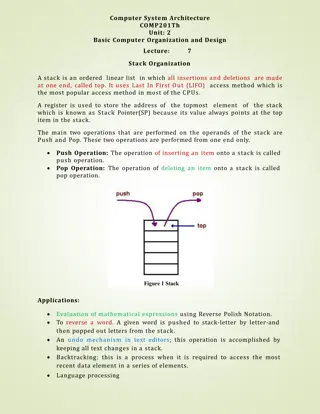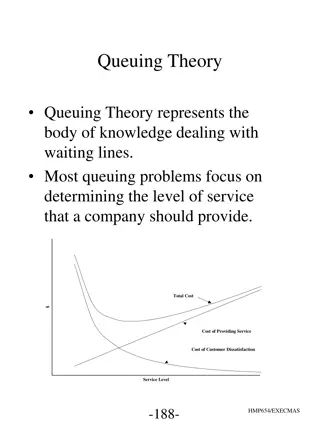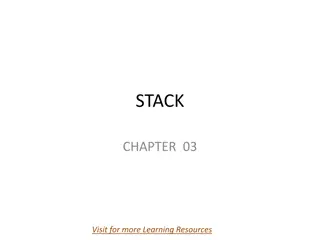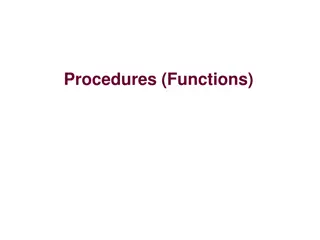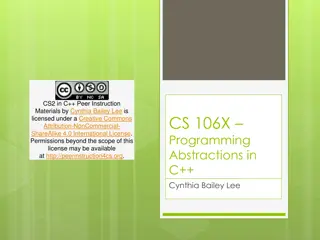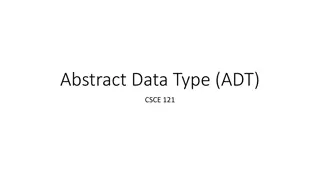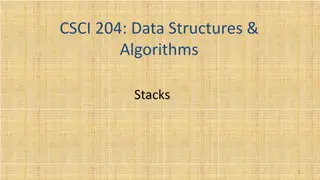Stack Organization in Computer Systems
A stack is an ordered linear list where insertions and deletions occur at one end, known as the top. It follows the Last In First Out (LIFO) access method and is commonly used in CPUs. Key operations include Push (inserting) and Pop (deleting) items from the stack. Applications include evaluating ma
0 views • 5 slides
Understanding Queuing Theory and its Characteristics
Queuing Theory is the study of waiting lines and service levels in businesses. It involves analyzing customer arrival patterns, service configurations, and queuing processes such as FIFO vs. LIFO disciplines. Characteristics include the generation of customers, homogeneity of populations, and determ
1 views • 25 slides
Understanding Stacks: Fundamentals and Applications
Stacks are linear data structures where all operations happen at one end — the top. They follow the Last-In, First-Out (LIFO) principle. This text delves into stack operations like push and pop, stack data management, and various applications such as infix to postfix conversion. Detailed methods a
0 views • 14 slides
Understanding Procedures and Functions in Programming
Explore the fundamentals of procedures and functions in programming, including the control flow changes, function calls, and stack operations. Dive into concepts such as stack management, pushing and popping values, and control flow terminology with practical examples. Enhance your understanding of
1 views • 119 slides
Understanding Queues and Stacks in C++
Explore the concepts of queues and stacks in the context of programming in C++ with insights on their differences, applications like event queues, and a fun puzzle involving queues. Learn about FIFO and LIFO structures, and how they are used in various scenarios like hospital queues and boarding pro
0 views • 17 slides
Understanding Abstract Data Types (ADT) and Data Structures
Abstract Data Types (ADT) refer to a mathematical model defining data types based on behavior, operations, and parameters. They focus on what operations can be performed on the data, not how they are implemented. Examples include stacks (LIFO) and queues (FIFO). Data Structures determine how data is
0 views • 6 slides
Introduction to Stacks in Data Structures and Algorithms
Stacks are a fundamental data structure in computer science, providing a last-in, first-out (LIFO) protocol. They are essential for solving various problems, such as palindrome detection, pathfinding, and evaluating math expressions. This content explores the concept of stacks, their applications, a
0 views • 11 slides
